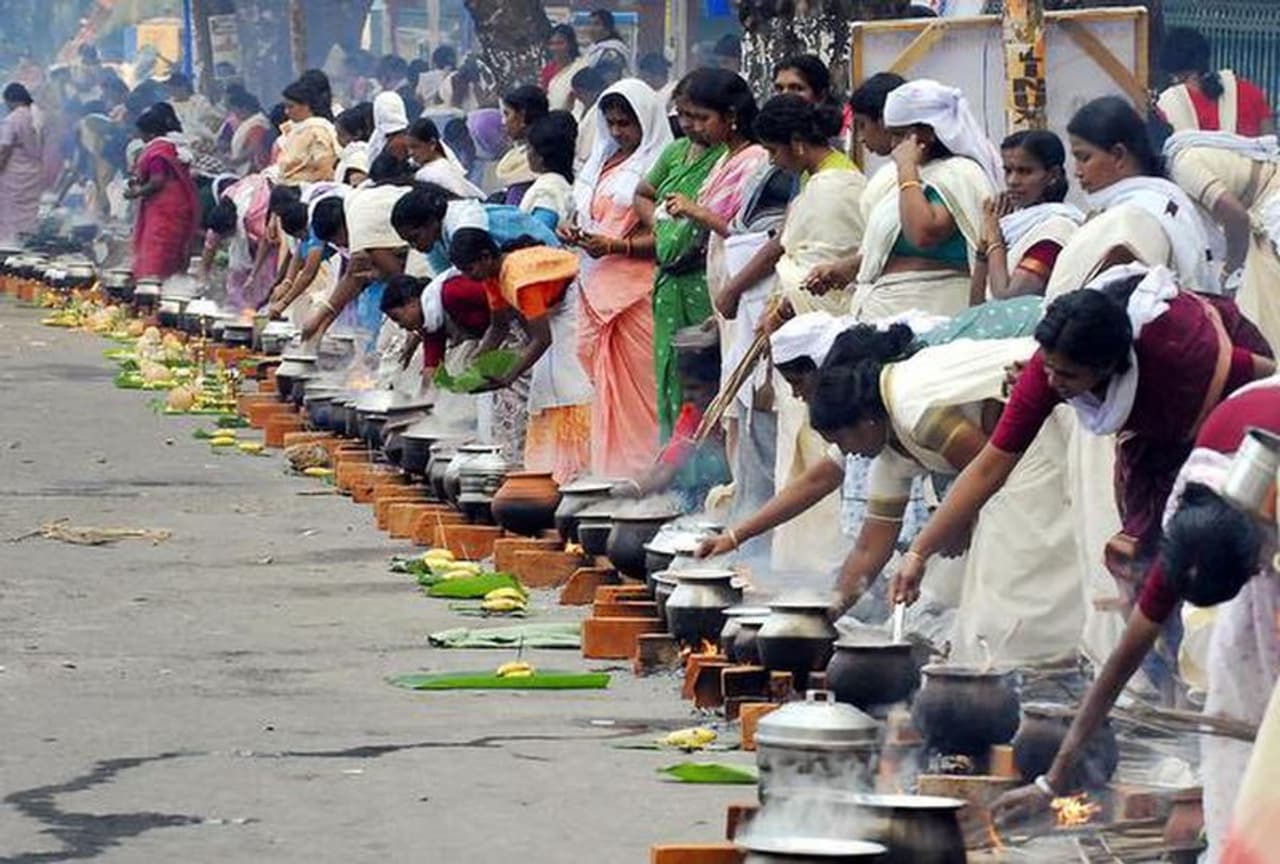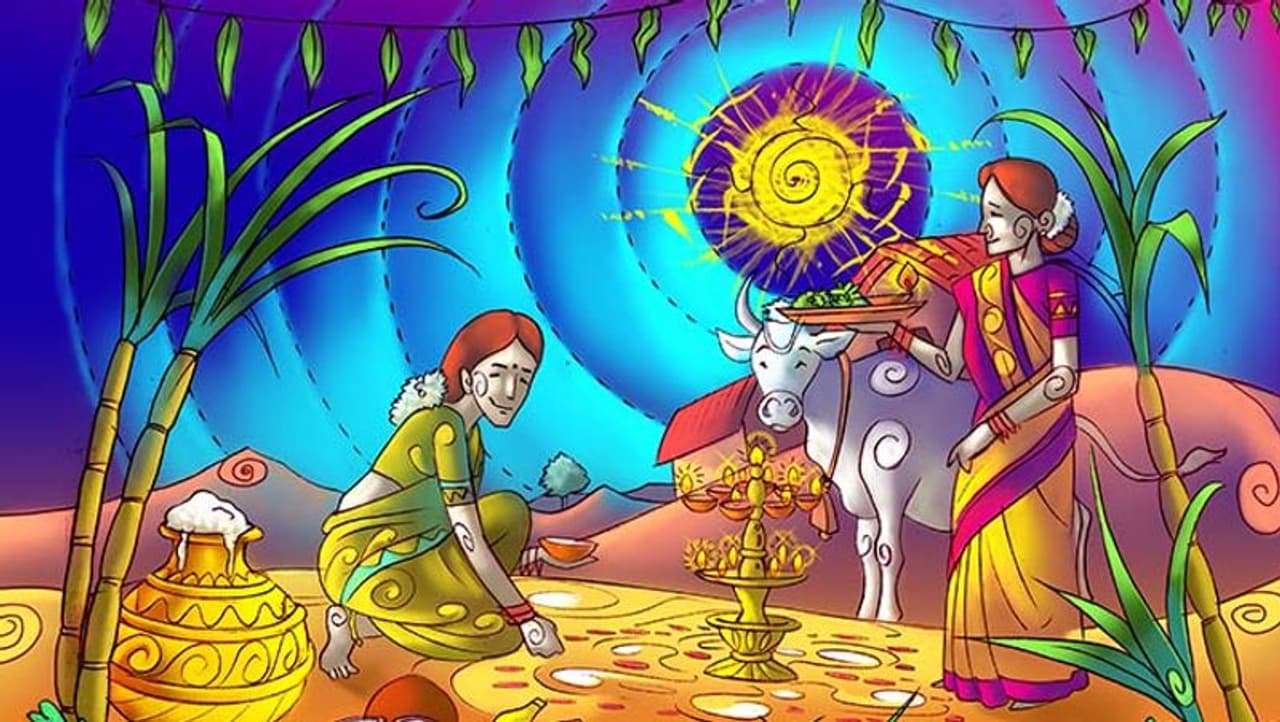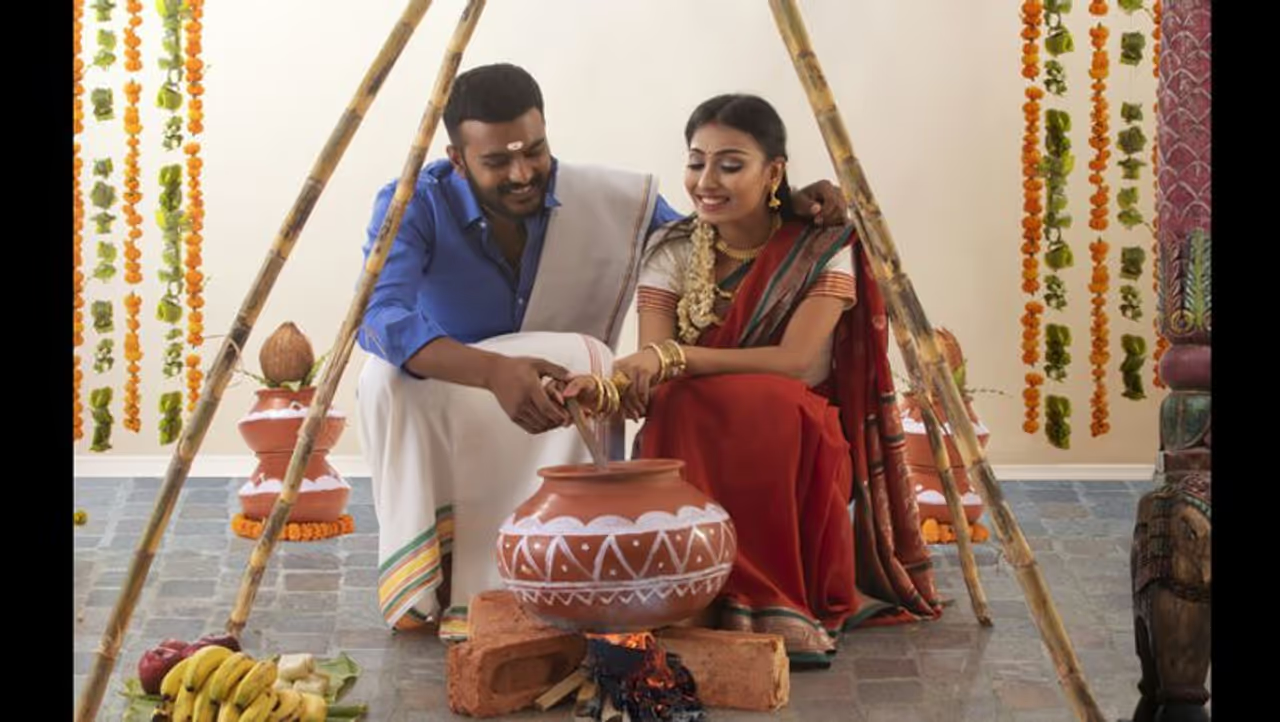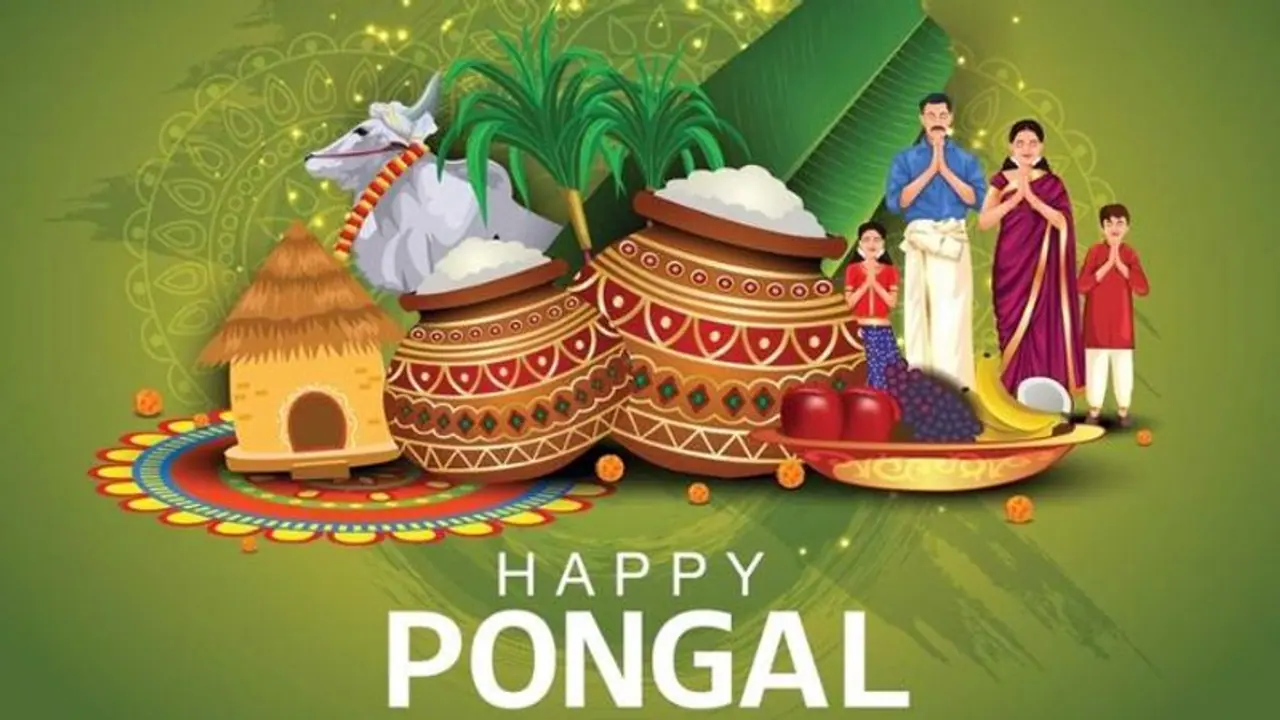Pongal is celebrated in mid-January, Tamil month Thai. Southern Indian states Tamil Nadu, Andhra Pradesh, Karnataka, and Kerala celebrate its harvest festival. Winter ends and rice harvests begin with the festivity.

Pongal is a harvest festival observed in southern India in Tamil Nadu, Karnataka, Andhra Pradesh, Telangana, and Kerala. It is a harvest celebration in which people praise the Sun, Mother Nature, and livestock for a bumper crop. Pongal contains ceremonial worship of cattle, Indra (the deity of Rain), agricultural-related artefacts, and Sun deity devotion. The celebration commemorates the winter season's conclusion and the harvest season's beginning, namely the rice harvest.
Pongal is celebrated in the south of India, whilst Makar Sankranti is celebrated in the north. Pongal is historically celebrated in the middle of January, during the Tamil month of Thai. Every year, the four-day event happens on January 14 or 15. Pongal will be commemorated on January 15 this year, according to Drik Panchang.
Also Read: Ayodhya Ram Mandir: 7 important life lessons from Lord Ram

Pongal 2024: History and Importance
This event dates back to the Sangam Period (200 B.C.E. to 300 A.D.). It began as a Dravidian harvest celebration, and it is recorded in Sanskrit Puranas as well. People are said to have celebrated the Thai Un and Thai Niradal festivals during the Sangam Era. Historians think that these events triggered the contemporary Pongal festivities. Maidens observed Pavai Nonbu at Sangam Era celebrations during Thai Niradal. The maidens prayed for rain and a thriving country.
The celebration began in late December or early January. After washing early in the morning, maidens had to worship the Goddess Katyayni idol, which was fashioned out of moist sand. They were told not to drink milk or milk products, not to grease their hair, and not to use strong words while conversing.
Their penance would be completed on the first day of the Thai month, which would be in January or February. Chola King Kiluttunga, according to an inscription at Tiruvallur's Veeraraghava temple, granted lands to the temple expressly for Pongal celebrations.
During the Pongal celebration, people pray and perform acts of worship to thank God for an abundant crop and wealth. This is also the beginning of the Tamil New Year. Pongal is a celebration in which the sun, the natural world, animals, and all gods are honoured in exchange for an abundant crop, light, and a pleasant existence.
Also Read: Makar Sankranti-Pongal 2024: Kanjivaram to Banarasi saree to buy

Pongal 2024: Muhurat Thai Pongal
Thai Pongal will be celebrated on Monday, January 15, 2024, according to Drik Panchang. At 02:54 AM, the Thai Pongal Sankranti Moment has arrived. Meanwhile, Makar Sankranti will be celebrated on Monday, January 15, 2024.
Pongal 2024: Puja Samagri, Rituals, Celebrations, and 4 Pongal Days
Pongal has customs comparable to Govardhan Puja and Chhath Puja. The celebration lasts four days, each with its own set of traditions. The festival is incomplete without indulging in a delicacy, popularly known as Pongal, created during the festivities. This meal is made with boiling sweet rice and is called from the Tamil word pongu, which means "to boil over."

- Bhogi is the first day of Pongal. It distinguishes itself by the cleaning and disposal of old belongings. The importance is that it represents a new beginning. People also buy new clothes and refurbish their houses.
- On the second day, the actual celebrations begin. Surya Pongal pays homage to the Sun God. Every house has a kolam at the front door. According to the muhurat, people prepare a pot of fresh rice and milk. A feast is also being planned.
- People worship cattle on the third day, known as Maatu Ponga, to celebrate the hard labour they put in to plough the soil. Cows are washed and decked up in garlands, beads, and bells.
- The fourth day of Pongal is known as Kaanum Pongal. This day is all about developing community and relationships. Families gather for a feast. They also perform Mayilattam and Kolattam, two classic Indian folk dances.
